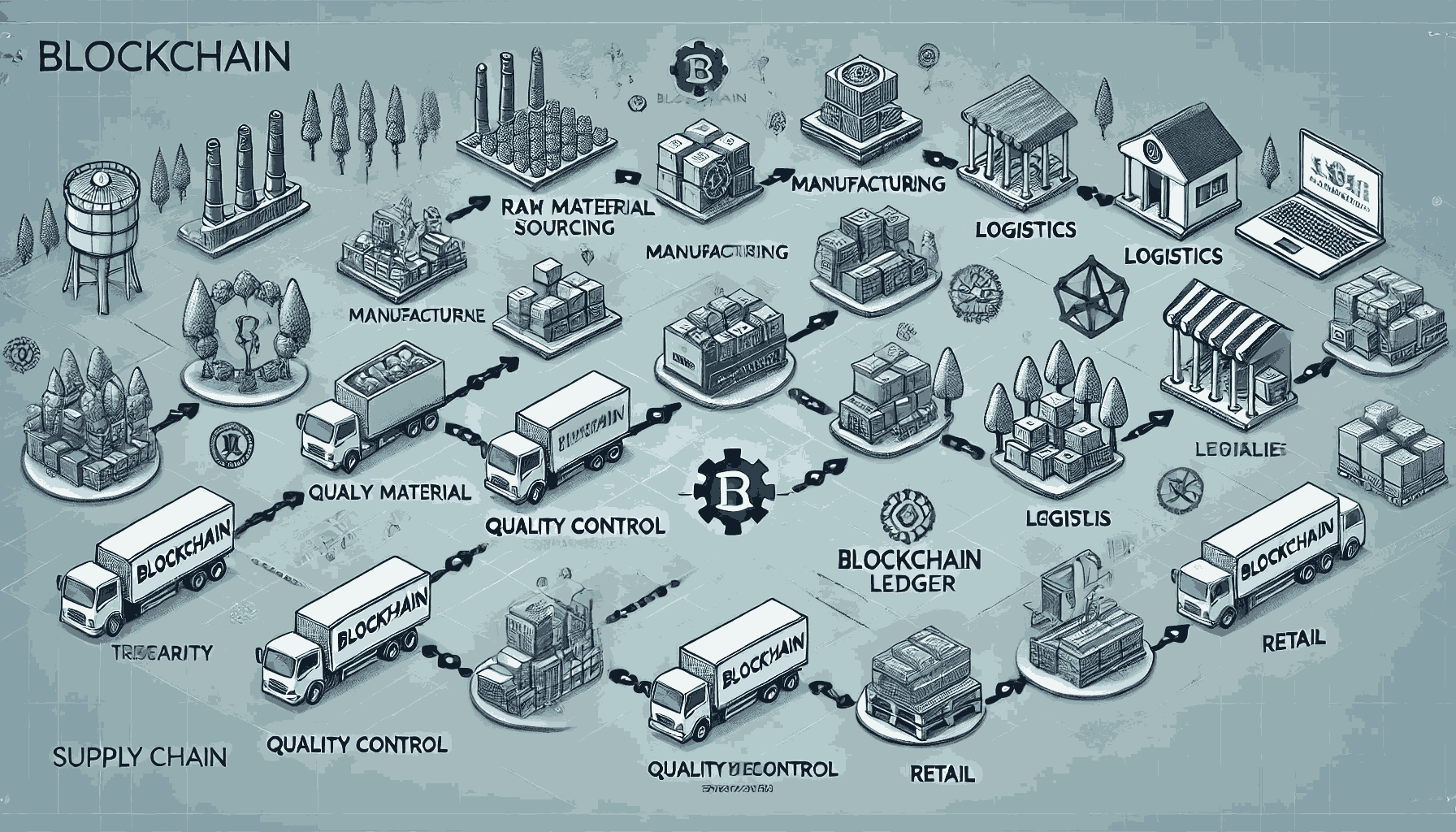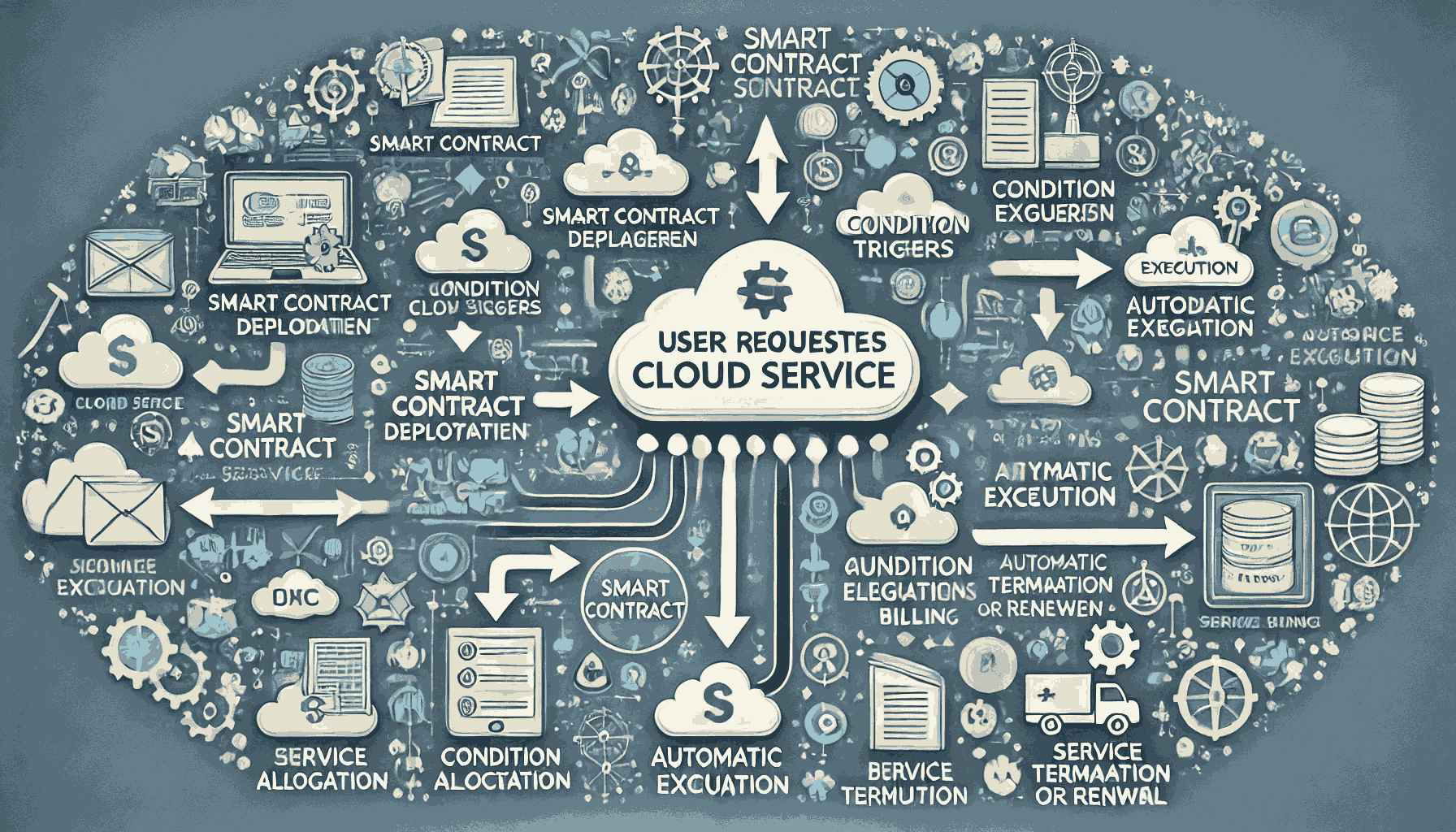Blockchain technology is often synonymous with cryptocurrencies like Bitcoin and Ethereum, but its potential extends far beyond digital currencies. As a decentralized, transparent, and immutable system, blockchain has the capability to revolutionize various industries, including IT, healthcare, supply chain management, and more. IT companies, in particular, can leverage blockchain technology to enhance their operations, improve security, streamline processes, and build new business models.
In this blog post, we will explore how IT companies can harness the power of blockchain beyond cryptocurrencies, showcasing its diverse use cases and the strategic advantages it offers.
What is Blockchain Technology?
Blockchain is a distributed ledger technology that stores data across a network of computers in a way that ensures transparency, security, and immutability. Each block in the chain contains a record of transactions that is verified and validated by multiple parties within the network. Once a block is added to the blockchain, it cannot be altered or deleted, providing a high level of trust and accountability.

While blockchain is best known for enabling cryptocurrencies, its capabilities go far beyond this. By leveraging blockchain technology, businesses can streamline operations, enhance security, and create innovative solutions in a variety of sectors.
Key Benefits of Blockchain for IT Companies
IT companies can benefit from blockchain technology in numerous ways, including:
- Enhanced Security: Blockchain’s decentralized nature and cryptographic algorithms make it highly secure, reducing the risks of data breaches and unauthorized access.
- Improved Transparency and Accountability: Blockchain’s transparent ledger allows for real-time tracking and auditing of transactions, ensuring that all parties can verify the integrity of the data.
- Cost Efficiency: Blockchain can eliminate intermediaries and reduce administrative costs, making transactions faster and less expensive.
- Streamlined Processes: The automation of tasks through smart contracts and blockchain-based applications can reduce the need for manual intervention and enhance operational efficiency.
Blockchain Use Cases Beyond Cryptocurrencies
1. Supply Chain Management
One of the most promising use cases of blockchain technology is in supply chain management. IT companies can leverage blockchain to create transparent and secure supply chains, ensuring traceability of goods from production to delivery. By recording each step in the supply chain on a blockchain, businesses can track products in real-time and reduce the chances of fraud, counterfeiting, or errors.
Example:
A company that manufactures electronic devices can use blockchain to track the entire journey of raw materials from suppliers to the assembly line. This visibility helps ensure the authenticity of the components and the quality of the final product.

2. Smart Contracts for IT Services
Smart contracts are self-executing contracts with the terms of the agreement directly written into code. Blockchain technology enables the creation and execution of these contracts, which automatically execute when predetermined conditions are met. IT companies can use smart contracts to automate service-level agreements (SLAs), manage vendor relationships, and handle various business transactions without the need for intermediaries.
Example:
An IT company providing cloud storage services can implement smart contracts to automatically adjust pricing based on usage or performance metrics. For instance, if a customer exceeds their storage limit, the smart contract can automatically trigger an additional charge or service upgrade without the need for manual intervention.

3. Blockchain for Data Security and Privacy
Blockchain's immutability and decentralized nature make it an ideal technology for safeguarding sensitive data. IT companies can use blockchain to enhance data security, particularly in industries where privacy and confidentiality are critical, such as healthcare, finance, and legal services. With blockchain, businesses can ensure that sensitive data is securely stored and accessed only by authorized parties.
Example:
A healthcare IT company can utilize blockchain to create a secure and transparent system for patient records. Each patient’s medical history can be stored in a blockchain, ensuring that no unauthorized individual can tamper with the records, and patients can have full control over who accesses their information.
4. Blockchain in Identity and Access Management
Blockchain can help IT companies strengthen identity and access management systems. By using blockchain-based identity verification, businesses can reduce the risk of identity theft, streamline user authentication, and eliminate the need for password-based security systems. Blockchain-based decentralized identities (DIDs) allow users to control their personal data and grant access only when necessary.
Example:
An IT company providing cybersecurity services can leverage blockchain for creating tamper-proof digital identities for clients. These digital identities can be used for authentication across multiple platforms, reducing the reliance on traditional password systems and enhancing security.
Case Study: How IBM Leverages Blockchain in Supply Chain Management
- Company: IBM
- Industry: IT / Technology
- Solution: IBM Food Trust (Blockchain for Supply Chain)
The Challenge:
IBM wanted to address challenges related to transparency and traceability in the global food supply chain. Food safety is critical, and consumers demand more information about where their food comes from, how it is processed, and whether it is sustainably sourced.
The Solution:
IBM Food Trust is a blockchain-based platform that tracks food products as they move through the supply chain. By partnering with major players in the food industry, such as Walmart and Nestlé, IBM has created a transparent system that allows consumers and businesses to track the journey of food products from farm to table. Blockchain enables real-time access to data, ensuring transparency, reducing food waste, and improving safety.
Results:
- Improved Traceability: The blockchain system allows businesses to trace products in seconds rather than days or weeks.
- Increased Consumer Trust: Consumers can scan QR codes on packaging to view the entire history of the product, including sourcing, quality control, and certifications.
- Reduced Waste: With better tracking, businesses can reduce food spoilage and waste, leading to cost savings and increased sustainability.
Conclusion: The Future of Blockchain in IT
Blockchain technology is far more than just the foundation of cryptocurrencies—it has the potential to revolutionize how IT companies operate and interact with clients. From supply chain management and smart contracts to enhancing data security and privacy, blockchain offers transformative capabilities that can improve business processes and drive innovation.
By leveraging blockchain beyond cryptocurrencies, IT companies can build more efficient, secure, and transparent systems that create new opportunities for growth and competitiveness. As blockchain continues to evolve, its applications will only expand, offering even more ways for IT companies to harness its power.
FAQs
IT companies can benefit from blockchain by enhancing data security, streamlining processes through smart contracts, improving supply chain traceability, and reducing operational costs. Blockchain also enables transparency and accountability, making it an ideal solution for industries that require high levels of trust and efficiency.
Yes, blockchain's decentralized and immutable nature makes it an excellent tool for enhancing data security. It ensures that data cannot be tampered with, and users have control over who can access their information, which is particularly valuable in industries like healthcare and finance.
Smart contracts are self-executing contracts with the terms directly written into code. IT companies can use them to automate business transactions, service agreements, and vendor management without needing intermediaries. This automation can reduce errors, streamline processes, and improve efficiency.
Both large and small IT companies can benefit from blockchain. Small businesses can leverage blockchain for cost-efficient data management, secure transactions, and decentralized applications, just as larger organizations do. The scalability of blockchain makes it accessible to businesses of all sizes.





